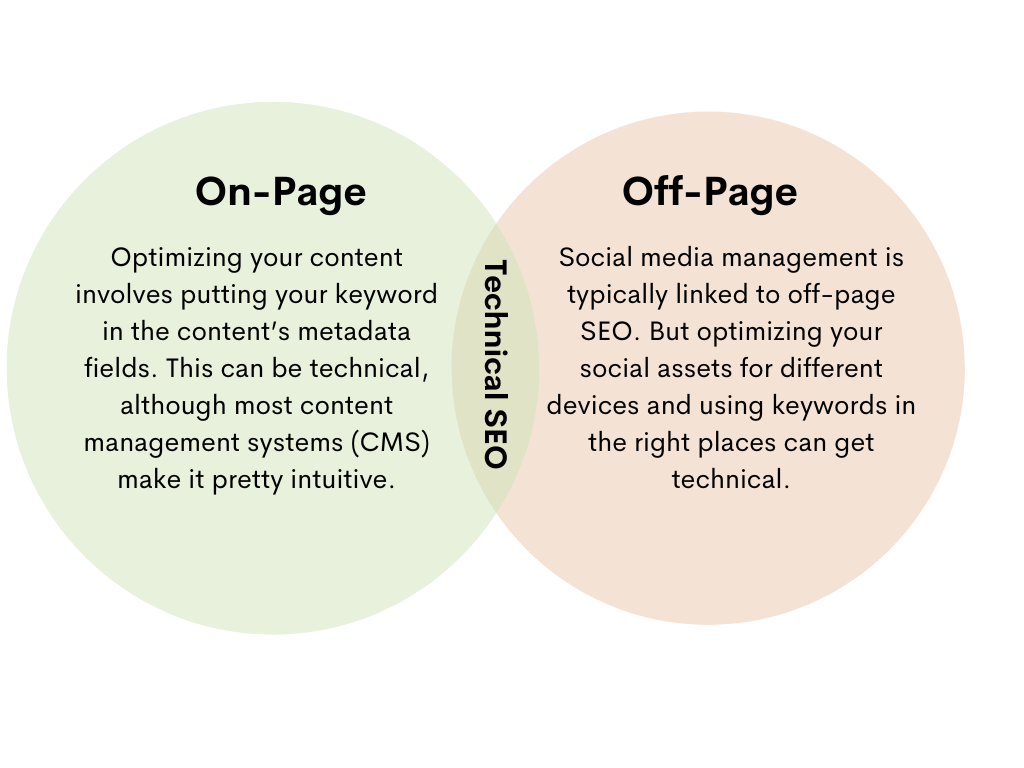In today’s digital world, search engine optimization (SEO) is an essential part of your marketing strategy. Just how technical does SEO get? And what kinds of optimizations should you make on your website? Let’s talk about technical SEO and how it fits into your SEO plan.
The field of SEO is expansive. There are four types of SEO, and technical SEO is one of them. As a whole, “SEO” also includes on-page, off-page, and local SEO.
Technical SEO refers to the process of optimizing your site’s backend to improve your rankings on the search engine results page (SERP). While technical SEO is its own category, all four types of SEO have technical elements.
Here are some technical SEO examples that illustrate its overlap with the other types of SEO.

If you’re familiar with SEO strategy, you know how important it is to audit your existing content and optimize new pieces. The technical side is no exception. A regular technical SEO audit can help you ensure that your digital content is getting the exposure it deserves.
Here are 6 types of technical SEO to include in your audit:
As discussed, there are technical SEO factors that overlap with on-page and off-page SEO. You can include these in your technical SEO audit to make sure your bases are covered.
5. Keywords in metadata: Your focus keyword should appear in your content’s title, headers, body, meta description, URL, image tags.
6. Backlink anchor text: As you work with publishers and partners to post backlinks, it’s crucial to specify the anchor text as best you can. That means making sure your focus keyword appears at the beginning of the text linking to your content
The benefits of technical SEO are significant, but it’s often more “behind the scenes.” Marketers are less likely to notice issues and opportunities. For example, if you’re in your CMS every day managing your website, you might not notice that your site structure has gradually gotten a bit messy.
That’s why it’s important to perform regular audits - we recommend at least quarterly.
Technical SEO and on-page SEO are considered two different categories under the same umbrella. The difference between technical SEO and on-page SEO is simply the level of technicality.
On-page SEO is typically more content-focused. It involves some technical aspects but centers on choosing the right keyword and creating content that will appeal to search engine algorithms. It includes activities like:
Technical SEO applies to specific pieces of content but also to your broader website in terms of optimizing a holistic user experience. Many overarching aspects of technical SEO affect every single piece of content on your site, such as:
While technical SEO can be part of your on-page SEO process, it also expands beyond that into sitewide optimizations.
As a modern marketer, it’s important to be comfortable with the technical aspects of SEO as well as the non-technical ones. While technical SEO is considered its own SEO category, there are technical elements in every other category, too. So don’t be afraid to roll up your sleeves and get technical - the algorithms (and your chief revenue officer) will thank you!